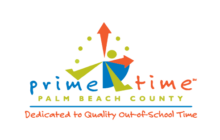9:00 am - 12:00 pm
Over the last 5 years, Prime Time has helped the JASE program become a successful afterschool program in Martin County. We are thankful for the variety of trainings offered, yearly actions plans and multiple site visits.
Afterschool ProfessionalMartin County Parks and Recreation
Well-Being Tools for Practitioners and Youth – Part 3
Please ensure your availability allows you to commit to all of the following dates before registering for the training series:
- 3/11/21 – Thursday – 9:00am-12:00pm – Well-Being Tools Part 1
- 3/25/21 – Thursday – 9:00am-12:00pm – Well-Being Tools Part 2
- 4/8/21 – Thursday – 9:00am-12:00pm – Well-Being Tools Part 3
CEUs: Prime Time is authorized by IACET to offer 1.2 CEUs for the completion of this training series. Click here to learn more here.
In order to earn CEUs, participants must meet the following requirements: complete all assignments satisfactorily, attend all sessions of the training series, miss no more than 15 minutes of total training time, actively participate in the trainings with their video on and pass the post quiz with a score of 70% or higher.
In the Well-Being Tools training series, practitioners will identify their sources of stress and learn self-care and resilience skills while creating a well-being plan to better navigate stress, improve work relationships and model well-being skills for co-workers and the youth in their OST program. Practitioners will learn and practice strategies to help youth manage stress and improve their well–being and social-emotional skills.
Well-Being Tools for Practitioners- Part 1– Introduction
Training Objectives
Participants will:
- Discuss and explore the meaning of well-being and key concepts: self-awareness, resilience, mindfulness, compassion and empathy.
- Identify the obstacles to well-being and evaluate the impact of stress on interactions with co-workers, youth and families served in OST.
- Practice exercises and tools that promote self-care through creating a personalized well-being action plan.
Well-being Tools for Practitioners – Part 2- Modeling
Training Objectives
Participants will:
- Recall self-awareness, stress management, and self-compassion practices and tools learned in previous session.
- Reassess, revise and extend well-being plans to include solutions and strategies that intentionally model well-being to peers and youth.
- Examine the impact of self-awareness on brain function and health and relate to personal experiences.
- Engage in practices that help model and transfer empathy, compassion and resiliency skills to coworkers and youth
Well-being Tools for Practitioners – Part 3- Life Skills for Youth
Training Objectives
Participants will:
- Discuss and apply strategies for reflecting on negative thoughts and emotions.
- Compare resources and strategies that teach youth practical life skills and coping skills.
- Analyze strategies to assist youth in learning to express emotions in positive ways.
- Practice activities that teach youth techniques to deal with stress and develop resiliency.

